
28 minute read
Gerry Moran
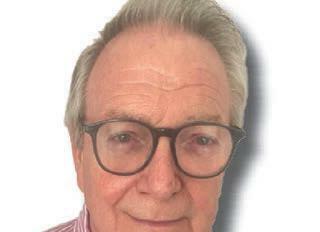
Furthermore
Advertisement


Gerry Moran
Cultural quotes, quips ... and quizzes
Friday September 23 is/was Culture Night. Should you be perusing this paper after the the 23rd then Culture Night was last Friday night. Either way it’s culture, culture all the way this week.
Quotes
“I don’t know anything about myself. Put it this way, there is no self. I believe that we are a compendium of personalities. We’re whoever we meet. We go through the day being who we think we should be and who we think we’d like to be.’”(John Banville, 2005 Booker Prize winner with e Sea).
e artist George Braque when asked in old age for his opinion of his friend Pablo Picasso (Braque and Picasso pioneered the art movement Cubism) said: “Pablo? Oh Pablo used to be a great painter, now he’s just a genius.” “Writing is the loneliest life. It’s not just the blank page but the blank room and the blank bed.” (Edna O’Brien).
“If a person is not talented enough to be a novelist, not smart enough to be a lawyer and his hands are too shaky to perform operations, he becomes a journalist” (American writer Norman Mailer).
“ e demons are out there and only vigilance will hold them at bay” (Author Marian Keyes on her depression and alcoholism).
“It’s not the intensity of singing that gets us down, it’s the intensity of what happens when the gig is over really. It’s all the madness that goes on” (Christy Moore).
“It often seems that the best die young. Yet in truth many were foolish, reckless and unhappy individuals” (Howard Sounes, author of Amy Winehouse And e 27 Club).
“Sometimes writing is easy and sometimes not. You have to be sitting at your desk, if you want to wait to do it, you might wait forever” (writer Faye Weldon).
Quips
“Why don’t you write books people can read” (Nora Joyce to husband James Joyce).
“ e play was a great success but the audience a total failure” (Oscar Wilde after the unsuccessful rst night of Lady Windemere’s Fan).
“What people are afraid of usually makes a good story”(F. Scott Fitzgerald). “People are wrong when they say opera is not what it used to be. It is what it used to be. at is what’s wrong with it” (Noel Coward).
“A low, coarse and mean nation, driven by a herd of rascals” (Charles Dickens on America).
“You paint with colours? NO. NO. You paint with feelings” (Chardin, French artist).
“When I hear people say the Colonel (Tom Parker) made Elvis, my response is: tell him to make another one’”(Rev. Rick Stanley, step-brother of Elvis).
“I hate music. Especially when it’s played’”(Jimmy Durante).
“I went to work with a toolbox and a guitar” (Johnny Logan on his brief career as an electrician).
“What does he do for me – more than a husband would do” (Joe Dolan fan).
Quizzes
Famous lines: e following lines may well be familiar, but who said them? 1. “A thing of beauty is a joy forever.” 2. “ ey also serve who only stand and wait.” 3. “Tread softly because you tread on my dreams.” 4. “Do not go gentle into that good night.’ 5. ‘No man is an island.”
Famous artists: Who painted the following well-known paintings: 1. Girl With A Pearl Earring 2. Nighthawks 3. e Starry Night 4. e Scream 5. e Kiss.
First lines: Following are the rst lines from famous novels. Name them. 1 “Call me Ishmael.” 2. “It was the best of times, it was the worst of times.” 3. “We were somewhere around Barstow on the edge of the desert when the drugs began to take hold.” 4. “It was a bright, cold day in April and the clocks were striking thirteen.” 5. “It is a truth universally acknowledged, that a single man in possession of a good fortune, must be in want of a wife.”
Answers
Famous Lines: 1. Keats 2. John Milton 3. WB Yeats 4. Dylan omas 5. John Donne. Famous artists: 1. Vermeer. 2. Edward Hopper 3. Van Gogh 4. Munch 5. Gustav Klimt. First lines: 1. Moby Dick, Herman Melville 2. A Tale of Two Cities, Charles Dickens 3. Fear and Loathing in Las Vegas, Hunter S ompson 4.Nineteen Eighty-Four, George Orwell. 5. Pride and Prejudice, Jane Austen

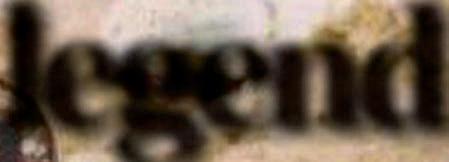
Tribute to a local legend legend
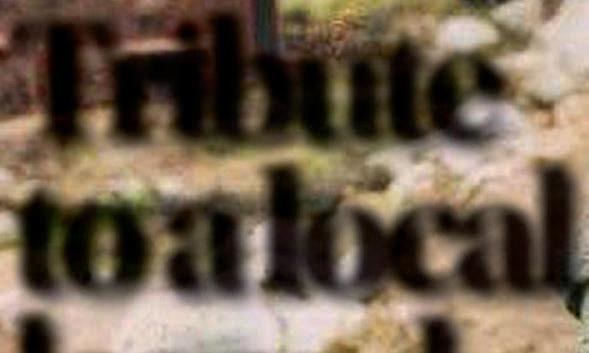
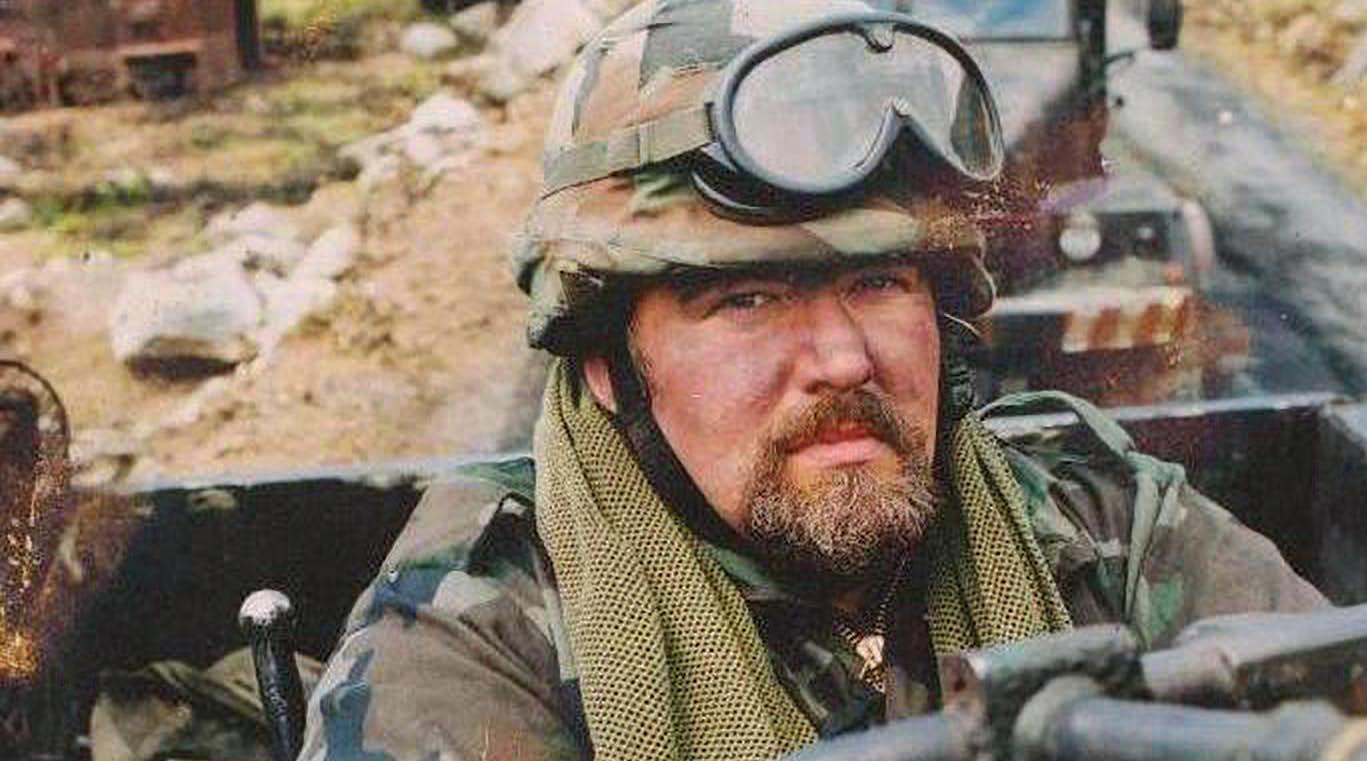
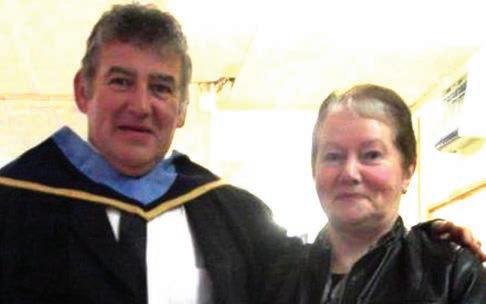
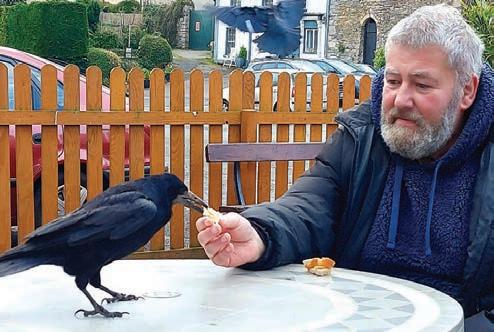
A mighty heart stopped beating when Nicky Fitzgerald, who divided his life between Callan and Inistioge, said goodbye to the world. He was sixtyone. News of his passing on September 10th grieved his vast circle of friends.
I felt privileged to be present in the ward in St Luke’s hospital when Nicky drew his last breath. He was diagnosed six years ago with a di cult to treat form of cancer. He fought it bravely and creatively with a combination of orthodox medicine and natural remedies, managing to keep it at bay. But recently it returned and the nal curtain came down on a man referred to as a “local legend” in Inistioge and who made a lasting impression on almost everyone he met.
Nicky’s life began in Callan. He attended the CBS and after completing his Inter-cert exam he worked for a while at Heron’s saw mill before qualifying as an electrician. His work took him, rst, to every part of the county and then to Europe and South Africa.
From an early age the picturesque village of Inistioge was his second home. His grandmother, Mary Kenny, whom he adored, lived there and she loved to see him arrive, full of fun-loving mischief and a new helping of anecdotes about his always intriguing encounters and predicaments.
In her later years, he cared for his beloved granny until she died in 1989, lightening the burden of her illness on even the worst days and nights.
He doubled as a nurse and jester to her, giving sel essly of his time to someone who, in turn, had welcomed him into her home since he was a child.
Following her death, Nicky moved to live in Inistioge where he continued his electrical work and added daily to his legion of friends. He met some of them in one or other of the four pubs (the village now only has two) and others along the banks of the River Nore where the leaping salmon twinkled in the spring and summer sunshine.
He acquired a phenomenal knowledge of the village and its surrounding countryside, eventually taking up photography as a hobby and snapping any little miracle of nature that caught his eye… a bee visiting a ower, a ladybird meandering around a blade of grass, or, a special favourite, the sun rising and setting over the village.
All four seasons had their attractions for him, but he preferred the summer, when he’d sit outside one of the pubs in a setting redolent of the South of France, sipping cool beer and rejoicing in the good times that life sent his way.
His electrical career entered a new phase when he found work on lm sets nationwide. When Nicky arrived back in Inistioge or Callan after his stint in Tinsel town he had tales of friendly chats with Liam Neeson, Chris O’ Donnell, Brendan Gleeson, Minnie Driver, Pierce Brosnan, Mel Gibson, Julia Roberts and other stars of the Silver Screen.
He worked on the epic Braveheart and Michael Collins movies, and the rain-sodden Angela’s Ashes, but he took special delight in the news that two major lms, Widow’s Peak and Circle of Friends were to be shot on location in Inistioge. ese were the golden years for Nicky, and when Niall Jordan picked Callan to shoot part of Breakfast on Pluto he was on the job from day one. Many locals served as extras but Nicky reveled in his assignments that o ered him a close-up view of lm making. He said he felt like royalty some days, enjoying the banter in the pubs at the end of each stint.
But then Nicky felt the urge, or ambition, to venture into new and unfamiliar territory. ough he’d left school after Inter-cert he relished the challenge of ascending the academic ladder to see where it might take him.
He enrolled in the Mater Dei Institute of Higher Education from which he graduated with a degree in history and theology. His graduation day was among the happiest of his life. His mother Kitty, whom he’d kept up to date on his demanding scholasticism, stood in to be pictured with him at the college, proud of this new milestone.
But he didn’t let his bookish achievements go to his head. He was still the same jovial Nicky that chatted to the river men and joked over pints in O’ Kee e’s or O’ Donnell’s, or exchanged yarns in the village square from which he and his pals a watched a rapidly changing world go by. en, six years, ago, the big C struck. Doctors told Nicky that it was terminal and that he had just months to live.
A cruel blow to a man who loved life and didn’t want to quit Planet Earth if he could help it. When it seemed that chemo mightn’t be enough to check the disease Nicky turned to nature, his faithful friend, for alternative ways of healing. e tumors went away, granting him those additional years of precious life to sip co ee with friends, travel to music festivals, pursue his photography, and, later on, compose poetry. e poems he posted on Facebook covered a multitude of themes, ranging from the gloom of Covid Lockdown and the romance of Valentine’s Day to the marvels of the natural world and the fraught relationship between shermen and the evervigilant water baili s.
His a nity with nature took a new twist when he developed a fondness for a crow that turned up on his doorstep one morning. He fed it some crumbs. It returned for more and soon began to follow him everywhere in the village. When he left the house in Hatchery Lane to go to the grocery “Buddy” the crow ew overhead and waited outside the shop for him.
Locals and tourists photographed Nicky feeding the crow on the fair green or from a table in O’Keefe’s outdoor cafe. “Buddy” became a kind of symbol for his interest in eco-issues and he posted daily on Facebook about the joys and woes of environmentalism.
Nicky used the extra time created by his ght-back against illness to live life to the full. en the cancer came back, exacerbated this time by a severe lung infection. He resolved to resume the ght. But the cancer spread.
Nicky greeted visitors to his ward at St. Luke’s with the same big smile and hearty words of welcome that that brightened many a heart over the decades. He jokingly invited them to his funeral, promising a party after it. Family and friends hastened to his bedside, hoping…praying.
Nicky said his nal farewell to a world he had enriched with his rare brands of humour, kindness, fun and adventure.
His open-minded attitude to religion and the question as to what lies beyond our physical world was re ected in his choice of a humanist service. is was beautifully arranged at the Inistioge community hall, into which sunlight streamed as his life was celebrated in words and music.
Months before I’d asked Nicky to let me know how he got on when he reached the Other Side. His reply was typical. He said he’d try but that I shouldn’t be put out if there was a bad line or the reception wasn’t great. at was Nicky, my brother. He fought the good ght and now he’s having the best party ever. (Pictures show Nicky with his pet crow “Buddy”, with his mother Kitty on graduation day, and as an extra in a sci movie. Pre-deceased by his father Gerry. Missed by his mother Kitty, brother John, sisters Mary, Emily, Ger and Catherine, uncle Pat, brothers-in-law, nieces, nephews, relatives, cousins, neighbours and friends. -John Fitzgerald


e arrival of a “new era” in international relations was triumphantly declared by both leaders the last time Chinese leader Xi Jinping and Russian President Vladimir Putin sat down face to face, they declared triumphantly
Amid a Western diplomatic boycott of the Beijing Winter Olympics and a looming crisis in Ukraine, the world’s two most powerful autocrats shared their vision for a new world order: it would better accommodate their nations’ interests, and no longer be dominated by the West.
In a 5,000-word joint statement, the two leaders declared a friendship with “no limits” and spelled out their shared grievances toward the West.
“ e world is going through momentous changes,” their joint statement said, noting the “transformation of the global governance architecture and world order.”
More than 200 days later, Xi and Putin awee to meet again at a regional summit in the city of Samarkand in southeastern Uzbekistan. Much has changed, but not necessarily in ways China or Russia could have predicted. ree weeks after meeting Xi in Beijing -- and just days after the Winter Olympics ended, Putin launched a full-scale invasion of Ukraine. He had expected a quick victory, but seven months in, Russia is far from winning. Its forces are exhausted, demoralised, and eeing territories they have occupied for months.
A destroyed Russian tank overgrown by plants in the village of Lukashivka, in the Chernihiv region of Ukraine.
And that is making China nervous. Having grown ever closer to Moscow under Xi, Beijing has a direct stake in the war’s outcome. A defeated Russia will strengthen the West and become a less useful and reliable asset in China’s great power rivalry with the US. A weakened Moscow might also be less of a distraction for the US, thereby enabling Washington to focus more squarely on Beijing.
At the second meeting Xi had a ne line to tread. If he leaned too much into helping Russia, he risked exposing China to Western sanctions and diplomatic blowback that would harm its own interests. e backlash would also come at a sensitive time for Xi, who is only weeks away from seeking a norm-breaking third term at the 20th Party Congress.
So, so far, the two authoritarian powers have not come any closer to shaping the world order in their favour — if anything, experts say Russia’s war on Ukraine has served to strengthen Western resolve.
For Putin, invading Ukraine was likely a rst step in removing Russia from the post-World War II -- and post-Cold War -- international order.
A swift seizure of Ukraine would have dealt a painful blow to NATO, expanded Moscow’s sphere of in uence and signi cantly shifted the balance of power in Europe, in Russia’s favour.
A Russian victory might also have set a dangerous precedent in regards to China, which has vowed to “unify” with the self-governing democracy of Taiwan -- by force if necessary.
Under Xi, Beijing is already stepping up military activity around the island. An easy win for Putin would have further deepened Xi’s belief the West is in decline, and provided a template for an attack on Taiwan — a hugely consequential event that could reset the global balance of power.
But Ukraine fought back and instead of sabotaging the US-led order, the invasion has reinvigorated NATO, strengthened transatlantic ties and united the West.
Putin’s meeting with Xi, meanwhile, could not have come at a worse time. Russian forces are retreating en mass in the northeast of Ukraine, losing more territory in a week than they captured in ve months.
While it is still too early to predict the outcome, even the prospect of Russia losing the war is enough to make Beijing anxious.
While the growing ties between China and Russia are primarily driven by their tensions with the West, they are also partly propelled by the close personal relationship between Xi and Putin. During his decade in power, Xi has met Putin 38 times — more than twice as many times as he has met any other world leader. ere is no guarantee a Russia without a strong Putin would be as keen to pursue a “no-limits” friendship with Beijing; in a worst-case scenario, it might even grow more friendly to the West, adding to long-running Chinese fears about geopolitical encirclement by the US. e question, then, was how far Beijing was willing to go to ensure Putin remains in control, and that Russia remains a powerful security and strategic partner to counterbalance America.
For its part, China has abstained from voting against Russia at the United Nations. It has blamed NATO and the US for the war and decried Western sanctions on Moscow. It has also stepped up economic assistance to its neighbour, boosting bilateral trade to record levels.
To judge by their last meeting the leader of China seems to be having second thoughts. If nothing else, he has not given any guarantees of any strengthening support of Putin’s stranglehold on the West.
And Putin’s stranglehold is slowly slipping ...
“China is willing to give Russia some tacit support politically, diplomatically and to some extent economically, but the bottom line is that it isn’t going to go out of its way and undercut its other strategic objectives to support Russia,” said Brian Hart, a fellow with the China Power Project at the International Centre for Strategic and International Studies.
So far, Beijing has carefully avoided actions that could violate Western sanctions, such as providing direct military aid to Moscow. Access to the global market is crucial for China, especially when its economy is already beset by severe problems, from slowing growth, skyrocketing youth unemployment to a collapsing housing market.
One area to watch, Hart said, is arms sales. China has long been one of Russia’s largest purchasers of arms. “I wonder if Russia’s own defence industry is overstretched, would it turn to buy weapons from China,” he said.
But even then, China would likely seek to send spare parts or items not on the sanction list, or ship them via convoluted routes that are di cult to trace.
“(Beijing and Moscow) have said over and over again that they don’t intend to create a formal alliance that binds them in ways that go against their interests. at didn’t work for them during the SinoSoviet alliance in the 1950s, and I think they really view that as a lesson of history,” Hart said.
“I think China will only continue to strengthen relations with Russia, to the extent that it really is in their overall interests.”

The China Syndrome
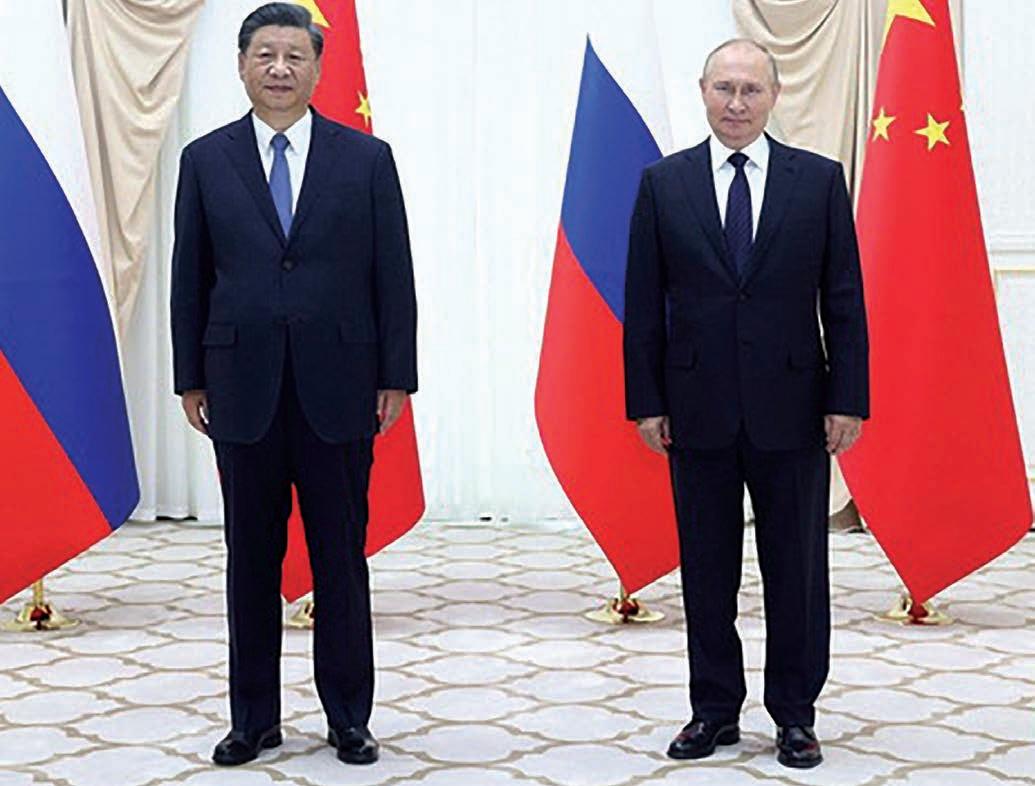
How Putin has shot himself in the foot
Back in February Russian President Vladimir Putin had high hopes for the invasion of his Western neighbour earlier this year — he was going to bring all of Ukraine back into Russia’s fold; he was going to expand Russia’s in uence throughout Eastern and Central Europe; he was going to fracture, if not force, the collapse of NATO. e Russian president was going to regain everything Russia had lost when the Soviet Union disintegrated, and reverse what he saw as “the greatest geopolitical disaster of the 20th century”.
But Putin’s hopes have been brutally crushed, and Rus-
Far from capturing Ukraine in a matter of weeks, Russia is now clearly on the defensive. Ukraine has recaptured more than 60,000 square kilometres of territory that Russia had occupied in the early weeks of the invasion. Russian soldiers are eeing, their commanders are disorganised, and the army is now being resupplied from ammunition stocks sold by North Korea. e larger strategic failure, however, is Russia’s declining in uence throughout Europe, and the rebirth of transatlantic solidarity through a strengthened and more uni ed NATO, which Putin himself has unwittingly fostered.
Far from fracturing, NATO and the West as a whole have responded to the war with remarkable unity of e ort. Russia is now the most sanctioned country in the world.
And, though Moscow may still hope to exploit Europe’s dependence on Russian gas as a weapon to force appeasement, it increasingly looks like alternative sources of supply and conservation measures will get the Continent through all but the harshest of winters.
Meanwhile, attitudes toward Russia have shifted dramatically, undergirding the strong and uni ed opposition to Moscow and its policies.
Meanwhile, Europe’s importance to Americans is underscored by their view of NATO. In fact, the American public is now more committed to the Atlantic Alliance than in any time since our polling began nearly 50 years ago. President Joe Biden has substantially increased commitment to NATO, deploying about 25 percent more troops, aircraft, mechanised vehicles and naval vessels, many far forward in the east.
Americans greatly favour such a long-term presence in Europe, with two out three supporting long-term bases in Germany (68%), the Baltic states (65%), and Poland (62%). In the case of Germany and Poland, those numbers are up by nearly 60% when compared to a decade ago.
Just as important is the fact that American support for NATO enlargement is as strong as ever.
Finally, Moscow’s actions even convinced Finland and Sweden to cast o their century’s old commitments to neutrality and apply to join NATO, with Alliance leaders inviting both countries to join last June, and the US Senate voting 95-1 to approve their accession last month.
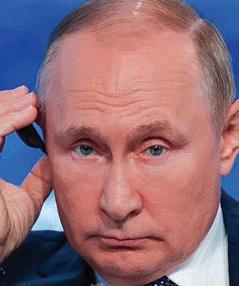




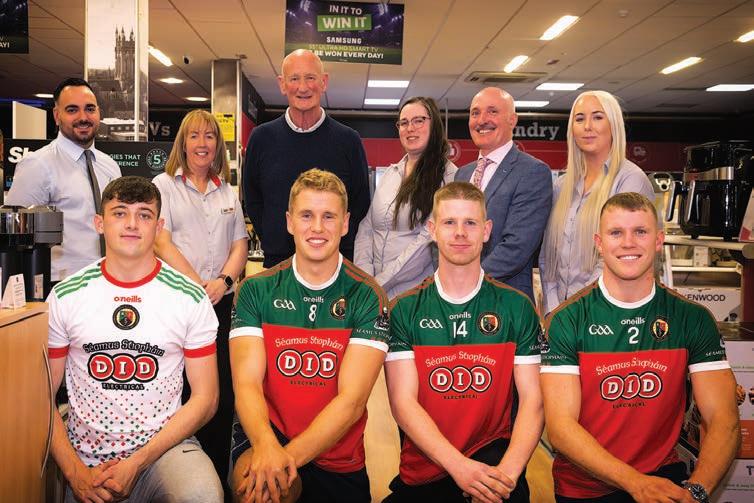
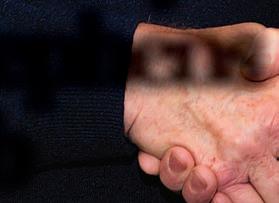

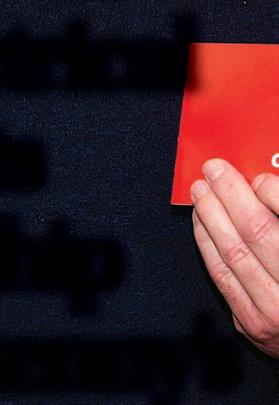
DID Electrical renews its partnership with Kilkenny’s James Stephens GAA club
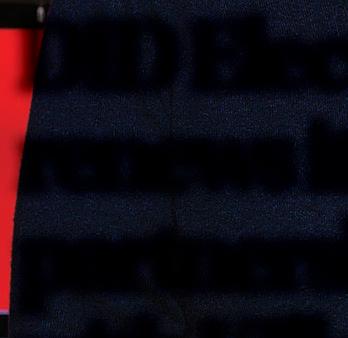
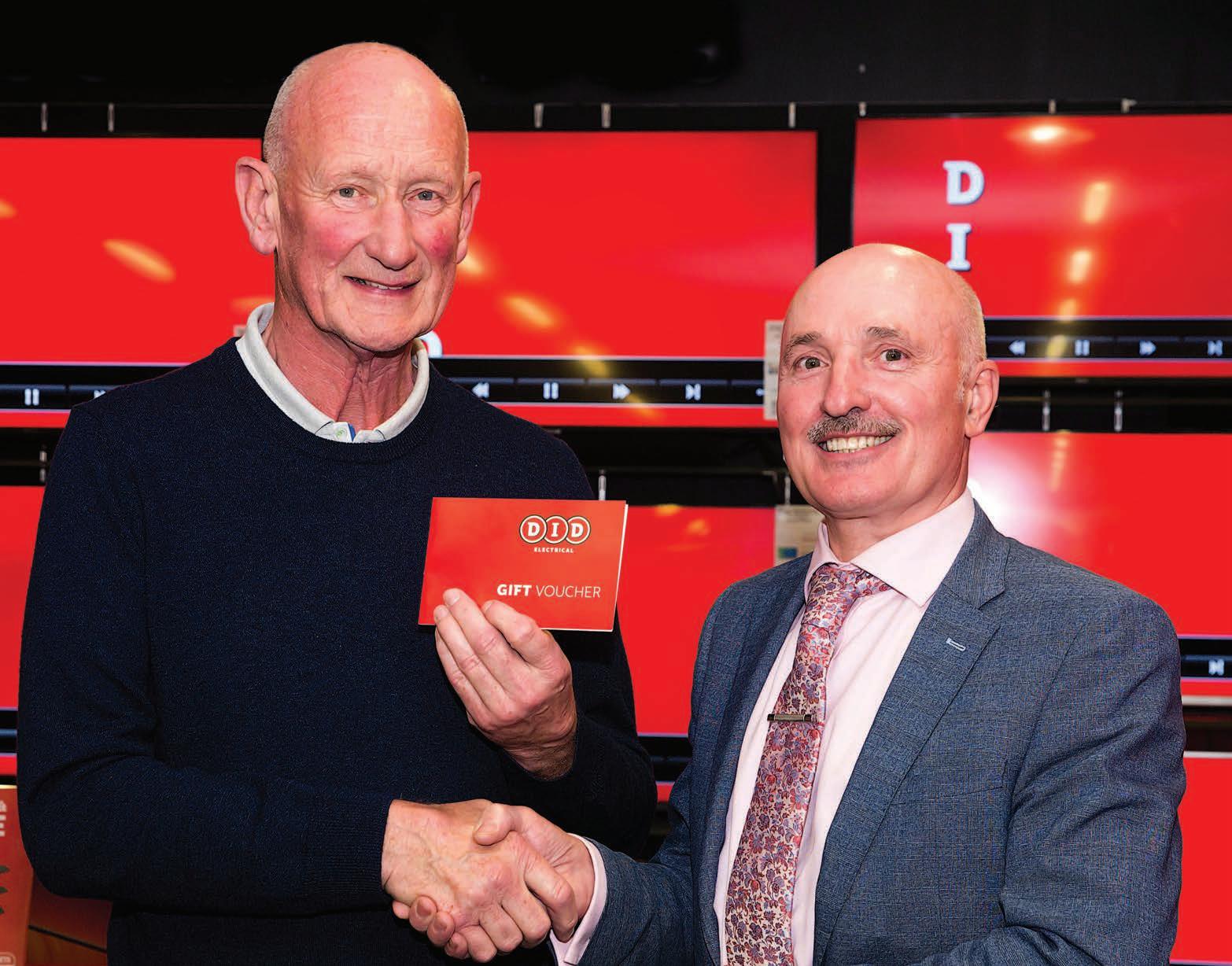
Guaranteed Irish Electrical retailer DID Electrical announce their sponsorship renewal with the Kilkenny City, James Stephens GAA club for a sixth consecutive year. is will see DID Electrical lead as the main sponsor for ‘ e Village’ club which has contributed to great talents over the years such as Brian Cody, Phil ‘Fan’ Larkin, Joe Hennessy, Eoin Larkin & Jackie Tyrrell just to name a few.
To announce the 2022 sponsorship, Brian Cody and other James Stephens members joined forces in the Kilkenny DID Electrical store along with the Manging Director, Ken Fox from the Irish Owned company. Commenting on the continued support from DID Electrical was Paddy Neary, Chairman of James Stephens GAA “We are delighted to renew our partnership with DID Electrical whose store is based in our parish. We wish DID Electrical continued success in their Kilkenny Store and on their on-line platforms and we always encourage our membership to support our main sponsor when in need of electrical goods.”
Commenting on the sponsorship renewal was Ken Fox, Managing Director, DID Electrical said “We’re delighted to continue this partnership with James Stephens GAA Club, which has gone from strength to strength in the past ve years and will continue as we move into the sixth year of being the main sponsor for the Kilkenny club. e local community in Kilkenny has always been extremely supportive of the store and our team love hearing about how the weekend matches went from all the local supporters who stop in to shop with us and all our team is thrilled to be re-partnering with them for another great year ahead”.
About DID Electrical
Proudly Guaranteed Irish and family-owned since 1968, DID Electrical has been Delivering, Installing, and Demonstrating the latest home technology to local communities for over 50 years. DID Electricals’ dedicated team of over 400 people working across 23 stores and online at www.did.ie continue to support thousands of customers to find their perfect appliance and technology solutions at unbeatable prices every day.

Those with mortgage arrears about to soar
e growing mortgage debt scenario has still not bee revoked by thousands of home owners, more than a decade after the 2008 nancial crash. e Central Bank is warning of a new rise in arrears cases due to higher mortgage rates and surging household costs.
Close to 6,000 residential mortgage accounts have been in arrears for more than 10 years, according to the latest gures from the Central Bank.
A total of 8,241 are in arrears for between ve and 10 years, according to the Residential Mortgage Arrears and Repossessions Statistics for the April to June period of this year. e number of accounts in arrears for more than a decade have fallen by just two in the past year. e total number of mortgage holders in arrears for between ve and 10 years is down 1,573 in the past year.
Homeowners in some form of arrears fell by 3,000 in the second three months of this year to 46,000 compared with the same period last year.
At the end of June this year , 4.4% of all residential mortgage accounts were in arrears over 90 days, representing 31,645 mortgage accounts. e Central Bank said there was an incremental downward trend in the number of accounts more than three months in arrears since March 2010. at was the point that arrears numbers peaked.
For the accounts in arrears, 5,908 are currently part of a legal process. One-third of these are in the legal system for more than ve years.
Banks regularly complain about the length of time repossessions take in the legal system, even when nothing is being paid on a mortgage.
Floating gas terminals may help with energy

Liqui ed Natural Gas (LNG) terminals that would ‘ oat’ is among the options listed to secure Ireland’s energy supply into the future.
A report compiled by consultancy rm CEPA has advised against a xed or commercial LNG terminal. e technical report looks at ways to secure Ireland’s energy supply between now and 2030. It looks at the possible risks to Ireland’s energy supply, lists the policy mitigation options and analyses the merits of those options. e report will go out to public consultation, with the closing date for stakeholders to provide feedback on the options is October 28.
Feedback will be analysed in November with a view to having recommendations go to the minister before the end of the year. Implementation will not be carried out until next year. e report comes amid soaring energy prices and an energy crisis that has been caused by Russia’s invasion of Ukraine.
Minister for the Environment Eamon Ryan has said he was open to either having an onshore gas storage facility, or a ‘ oating’ LNG terminal as a back-up facility, which were among the options long-listed in the report.
“I believe particularly the onshore facility has a number of key advantages,” the Green Party leader said on RTÉ Radio.
“First, we could draw down the gas from the existing network and it would give us a real strategic exibility and capability,” Ryan said.
“Second, it will be possible for it to be future-proofed, so that we do know we’re going to need these sort of investment facilities, these sort of storage facilities into the future, when we will be developing our own hydrogen gas,” he said.
“And so we can design it and develop it in a way that that is a strategic safety reserve which gives us exibility into the future.”
Although the report recommends an LNG terminal as a oating, back-up facility, it recommends against three other LNG terminal possibilities.
Of a commercial, xed LNG terminal – such as the Shannon LNG project that has been proposed – it said that “commercial operation is likely to result in the importation of fracked gas to Ireland”.
It notes this option would not necessarily ensure security of supply: “As storage stocks would be driven by market fundamentals, there would be no guarantee that stored gas volumes would be su cient to cover a security-of-supply shock.” e report lists several other policy options, including a 450MW biomass plant; an additional electricity interconnector with France; and a 360MW pumped hydro storage capacity, which could “alleviate relatively small but sustained electricity supply shocks”. Micro-businesses and newer businesses have skills de cits when it comes to people and leadership, according to a MentorsWork report by the Small Firms Association (SFA) supported by Skillnet. e research indicates that smaller SMEs are falling behind especially in key areas including performance management, teamwork, creating a culture of innovation and guiding change. e People and Leadership competency score was highest for larger SMEs, those with more than 50 employees, and for established businesses more than 21 years in operation. It was lowest for micro-businesses with nine employees or less, and for ‘younger’ businesses operating less than 10 years. e research surveyed 615 business owners, asking them to self-assess their people and leadership competencies. Weighted responses were then compared between the di erent businesses, di erentiated by size, business age and sector.
Among the key ndings of the survey were: * Communication and negotiation skills, inside and outside the organisation, were identi ed as below average in businesses operating less than 20 years, and in those employing 50 or less. * e leadership skillset, de ned as helping people realise their potential, while inspiring them to work with the business to achieve strategy and goals, was lowest for micro-businesses with 9 or less employees, and for younger businesses, established less than 10 years. * Resilience, the ability to keep calm and to bounce back from setbacks was seen to be lowest in the retail/ hospitality sector, in microbusinesses and in younger businesses. * Larger businesses (50+ employees) and younger businesses (0-10 years) were identi ed as below average with innovation skills. Innovation was de ned as being able to pivot and innovate in line with customer and market demands.
Skillnet Ireland Chief Strategy O cer Mark Jordan said: “Insights direct from businesses and business owners and managers, underpins everything that we do at Skillnet Ireland. e publication of this research allows us to understand the skills businesses need support with, and how those needs vary across the SME landscape. It also helps us to continue to deliver that support through programmes such as MentorsWork, which features people skills as one of its four crucial pillars for development. Ensuring businesses can develop the people and leadership skills they need is vital to driving productivity and growth.”
Sven Spollen-Behrens, Small Firms Association Director, says: “People and leadership skills are of vital importance for the sustainability and productivity of small and medium business in Ireland in order to implement the necessary changes to adapt to an ever-evolving business landscape, as highlighted in government’s Leading the Way Report: Investing in Management Development for SME Productivity and Growth’.”
An additional 400 MentorsWork places are now available for small business owners and managers to hone their business plans and vital management skills before year-end.
* SMEs can apply at https://mentorswork.ie.

Small businesses ‘lacking the skills’
Sinn Féin looks to the farming vote for power boost
A big swing in the farming vote away from Fianna Fáil and Fine Gael is being targeted by Sinn Fein as the party attempts to gain power after the next election.
In an exclusive interview with the Farming Independent, party leader Mary Lou McDonald says the majority of farmers will “be much better o under a Sinn Féin government”.
Ms McDonald, who attended the Ploughing Championships, said farmers would bene t from Sinn Féin’s alternative budget proposals, including increased supports to suckler farmers, improvements to the sheep welfare and ANC schemes, and emergency crisis funding for vulnerable sectors. She also con rmed the party supported extending existing agriculture reliefs.
A recent Sunday Independent/Ireland inks poll found that Sinn Féin continues to be the most popular party in the country on 36%, while 57% of people think Ms McDonald will be Taoiseach after the next general election. According to the Sinn Féin leader, the farming vote has always been important to her party.
“Sinn Féin wants to deliver for our family farmers, and those rural communities that depend on them, in government,” she said. “We believe farmers deserve change as much as anyone. Too many of them have been let down by successive governments,” she told the Farming Independent.
e party is proposing that anyone earning more than €140,000 would pay “slightly more income tax because you’ve broader shoulders, you have deeper pockets, so you can pay a bit more” — a move that would impact a lot of dairy farmers who are enjoying record-high milk prices.








